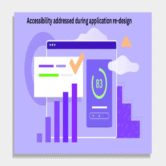
Briefly outline the legal considerations in signage placement.
INTRODUCTION
Placing signage in public or private spaces is not just a design and marketing decision—it also involves important legal and regulatory obligations. Failure to comply with signage laws can lead to fines, removal orders, or reputational damage. Legal considerations vary by region, zoning laws, and property type, making it essential for businesses and designers to be informed and compliant. Below is a brief outline of key legal considerations in signage placement.
1. ZONING REGULATIONS
Local zoning ordinances dictate where signs can be placed based on property use (commercial, residential, industrial, etc.). Certain zones may restrict the size, height, and type of signage allowed, or prohibit certain types altogether.
2. PERMIT REQUIREMENTS
Most municipalities require permits before installing exterior signs. These permits ensure that signage adheres to community standards, safety codes, and aesthetic regulations. Unauthorized signage may be subject to removal and penalties.
3. PROPERTY OWNERSHIP AND RIGHTS
Signs must be placed on property where the installer has legal rights. Placing a sign on public land, utility poles, or a neighboring business without consent may violate property laws or easements.
4. SIZE AND HEIGHT LIMITATIONS
Many jurisdictions limit the dimensions and elevation of signs to prevent visual clutter or obstruction. Oversized or improperly scaled signs may violate municipal codes or pose safety risks.
5. VISIBILITY AND SAFETY STANDARDS
Signs must not block visibility for drivers, pedestrians, or emergency signage. Placement that interferes with traffic signals, road signs, or public safety features can be deemed hazardous and illegal.
6. LIGHTING AND ILLUMINATION RULES
Illuminated signs, including neon or digital displays, are often regulated to prevent light pollution or disturbance to residential areas. Brightness levels, hours of operation, and flashing effects are commonly restricted.
7. ADA AND ACCESSIBILITY COMPLIANCE
In the U.S. and other countries, signage in public buildings must comply with accessibility laws like the Americans with Disabilities Act (ADA). This includes height placement, tactile lettering, braille, and non-glare surfaces.
8. HISTORICAL OR AESTHETIC DISTRICTS
Certain locations, like historical zones or design-controlled areas, may have strict guidelines to preserve the character of the environment. Only approved materials, styles, or sizes may be permitted.
9. CONTENT RESTRICTIONS
While freedom of speech protects most sign content, some jurisdictions may regulate language that is offensive, misleading, or deceptive in commercial signage. Compliance with advertising standards is essential.
10. TEMPORARY SIGNAGE LIMITATIONS
Banners, event signs, and promotional displays often have time-bound legal limits. Permits may specify duration, placement restrictions, and conditions for removal after the event.
CONCLUSION
Understanding and adhering to legal considerations in signage placement is essential for ensuring public safety, preserving community standards, and avoiding costly legal consequences. Consulting with local authorities, property managers, and legal experts during the planning stage helps ensure signage is both effective and compliant.
HASHTAGS
#SignageLaws #LegalSignage #ZoningRegulations #SignPermits #SafetyCompliance #SignageStandards #ADACompliance #PublicSignage #OutdoorSignageRules #MarketingCompliance #SignagePlanning #SignageDesign #PropertyLaws #VisualCommunication #BuildingCodes #MunicipalGuidelines #HistoricDistrictRules #SignagePolicy #LegalMarketing #SmartSignage #RegulatoryCompliance #AdvertisingEthics #SignageBestPractices #LegalConsiderations #SignageVisibility





